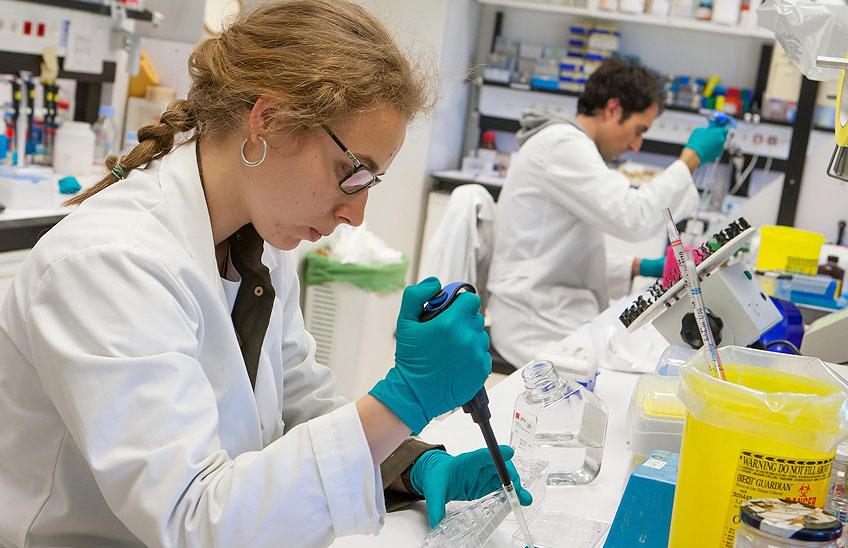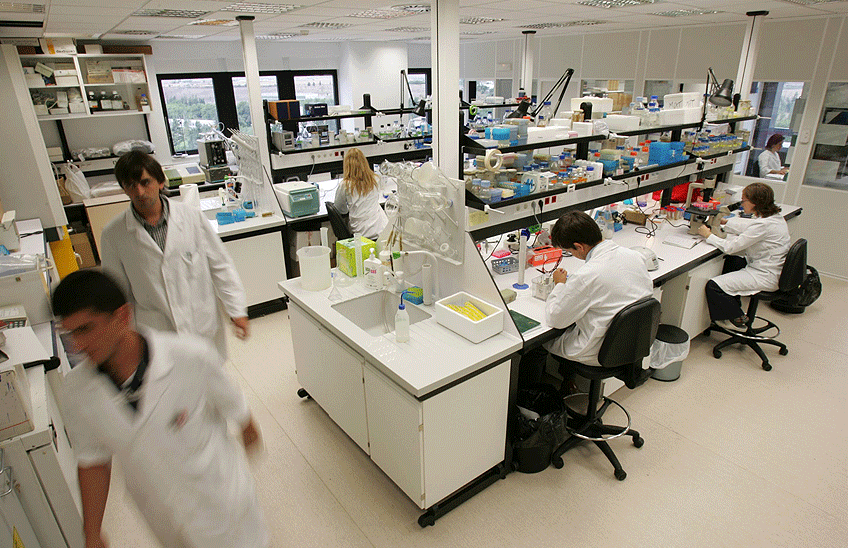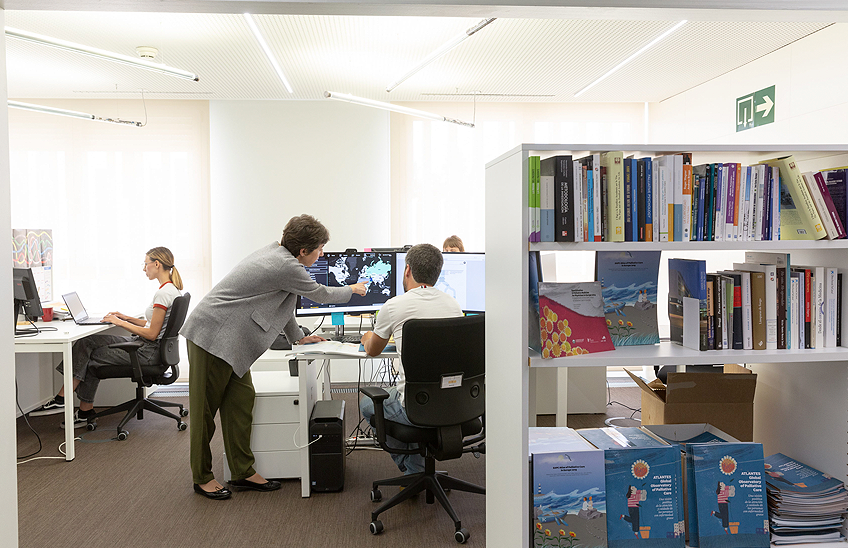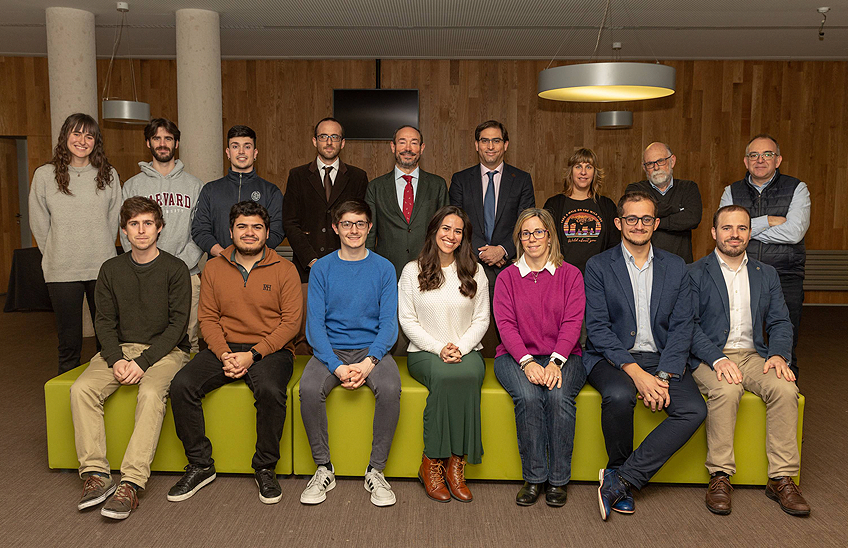University honors predictive AI breakthroughs in its 3rd DATAI Awards
Award-winning works stand out for their social impact in biomedicine and application of artificial intelligence to reduce social inequalities
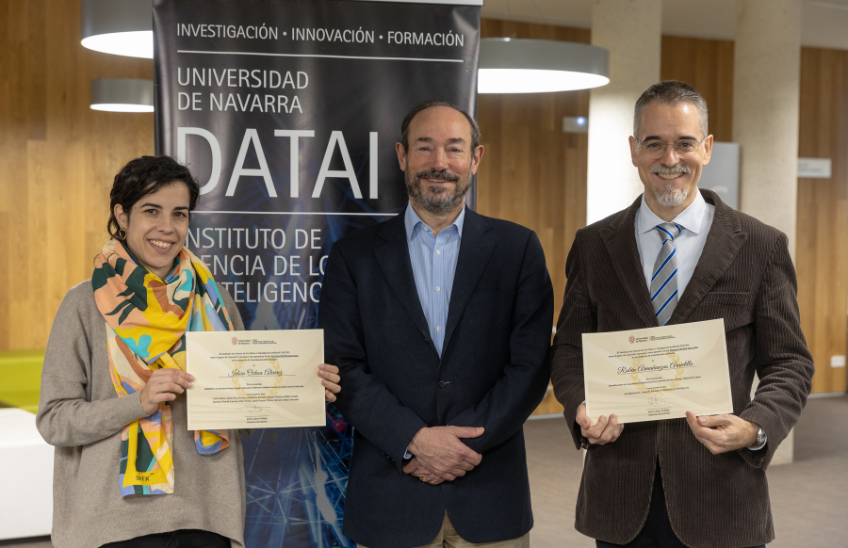
PhotoManuelCastells/From left to right: University researchers Idoia Ochoa, Jesús López Fidalgo and Rubén Armañanzas.
27 | 01 | 2025
The University's data Science and Artificial Intelligence Institute (DATAI) has recognized, in the third edition of its awards, new uses of artificial intelligence (AI) to predict data outcomes. These advances stand out for their social impact in biomedicine, computational biology applied to health and employment AI to reduce social inequalities.
In the III DATAI Awards, contributions have been valued in two categories, "Best Methodological article " and "Best Applied article ", selecting research involving Idoia Ochoa, deputy director of department of Electrical and Electronic Engineering at Tecnun - School of Engineering; Rubén Armañanzas, leader of laboratory of Digital Medicine of DATAI; and Ignacio Rodríguez, Senior Associate Professor of the School of Economics.
The jury was made up of three renowned international scientists: Amparo Alonso Betanzos, professor at department of Computer Science and Artificial Intelligence at the University of La Coruña; Enrique del Castillo, distinguished professor of Industrial Engineering and Statistics at Pennsylvania State University (USA); and Rakhi Singh, associate professor at department of Computer Science at the Indian Institute of Technology in Bombay (India). In choosing the winners, the jury assessed the originality, innovation and contribution to society of the works presented.
GENNIUS, best methodological contribution
The "award to the Best Methodological article " has been awarded to GENNIUS, an innovative artificial intelligence system capable of predicting drug interactions with unprecedented accuracy and speed, which could revolutionize the finding of new drugs. This predictive model , developed by researchers at Cima University of Navarra, Tecnun and DATAI, in partnership with research center in Biomedical Informatics at Stanford University, has been described in the scientific journal Bioinformatics.
The system can be found at available for academic community with the goal to promote the advancement of this technology and encourage the creation of new programs of study that will benefit the patient in the shortest possible time.
Tecnun and DATAI researcher, Idoia Ochoa, collected the award on behalf of the manager GENNIUS team.
Advances in brain health and inequalities assessment
In this edition, the jury decided to recognize with award for "Best Applied article " the work of two groups from research.
The first work, led by Rubén Armañanzas, leader of DATAI's Digital Medicine laboratory ; identifies five subtypes of concussions by analyzing electroencephalograms (electrical activity of the brain). Using AI to process the data of more than 700 patients, the study offers significant improvements in concussion detection and classification. Conducted at partnership with the business medical neurotechnology BrainScope Company, the research has been published in JAMA Open Network (Neurology).
The second award-winning research is the work in which Ignacio Rodriguez, Senior Associate Professor of School of Economics and researcher associate of DATAI, participates. The article, published in npj Urban Sustainability, is based on the use of artificial intelligence to predict how people perceive conditions of deprivation or inequality in their communities using satellite images. Its results have relevant implications for urban planning and decision making focused on social improvement.
Research with social impact
These awards are aimed at all DATAI researchers and are endowed with 3,000 euros each to promote development research. They recognize excellence and innovation multidisciplinary in science of data and artificial intelligence, as well as the social projection of the awarded works. Its purpose is to highlight the impact of scientific advances and foster high-level international collaborations.
Jesús López Fidalgo, director of DATAI University of Navarra, was in charge of submit the awards to the winners, highlighting the commitment of the institution with the research vanguard and its commitment to the generation of knowledge that benefits society.

